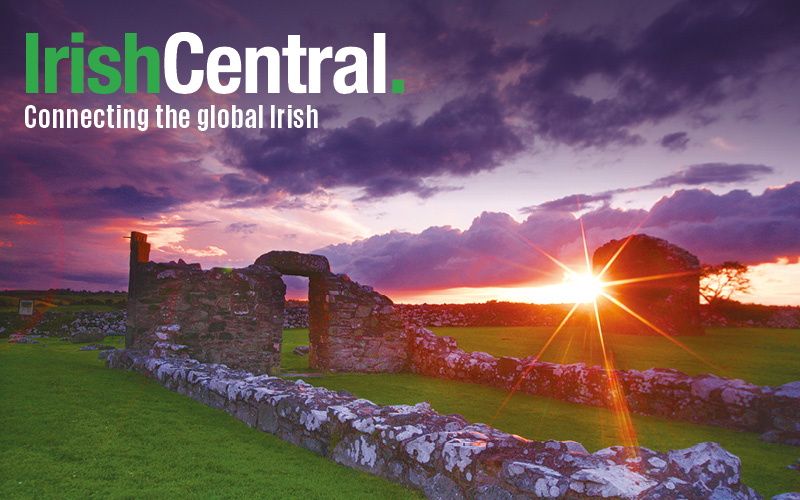Civil war in Irish Catholic Church over child-abuse scandal
How Ireland has failed to learn lessons from Famine
The report of the Commission on Child Abuse makes clear the depravity and monstrous behaviour of the Catholic Church. They stole, lied and terrorised. They assaulted children. They scalded them, flogged them and . . . raped them. Sometimes, the children were gang-raped. The holy men and women locked children up for days in tiny rooms, cupboards and pig sties. One recalls being bitten by rats during his incarceration.
Eight hundred pedophiles were known to have existed within the Church. Obviously, there were more than 1,000 pedophiles (perhaps many more) raping and/or molesting boys and girls. The question on most people’s lips in Ireland has been: "How did the Church get away with it for so long?"
Fear is one answer; deference another but what put fear and deference there? It’s a legacy of the Roman Empire and the Great Irish Famine of 1845-50 when "unwanted" children became a burden. It is also related to Italian nationalism – the Risorgimento of the 19th century. By 1861, when the Italian peninsula was unified, the Papal States were absorbed by the larger Italy. They continued to exist until 1870 but their days were numbered. The Pope in Rome (Pius IX) barricaded himself into the Vatican in protest.
Legacy of the famine
The Papal States (the Italian football team ‘Lazio’ is a remnant) at the time measured about 16,000 square miles. Taxes were heavy as the population were made finance wars against Protestant kings. People in the Papal States were generally the most ignorant and backward of any in Western Europe. Mind you, the loss of the Papal States was a serious setback for Rome. Henceforth, Rome would target Ireland as a substitute, formidably abetted by Cardinal Paul Cullen who led “the devotional revolution” in the country.
It’s a legacy of the Famine. This was largely blamed on the British (the Irish benefited too from land-grab). So, the decision was made: better be under the [Holy] Roman Empire than the British one. Given the timing of the rise in Italian nationalism and the fact that Cardinal Cullen was utterly loyal to Rome (he wrote the encomium that proclaimed Papal infallibility in 1870) Cullen was described as “being more Italian than Irish”.
William Butler Yeats wrote that after the death of Parnell in 1891, the Irish turned away from politics to culture. To an extent it’s true but what the Irish really turned away from was parliamentary politics and its promise of Home Rule. Instead, throughout the period Irish people made their own ‘self-help’ politics founding the GAA (Gaelic Athletic Association); the IAOS (Irish Agriculture Organisation Society); the Gaelic League (Douglas Hyde) ; the Irish Literary Theatre (later the Abbey); Inion na hÉireann (Maud Gonne) and others.
Meanwhile, the Catholic Church grew stronger. In 1800, there had been fewer than 100 nuns in Ireland. By 1900, there were 8,000 of them and 14,000 if you included priests and brothers. Most nuns and brothers came from large farming families – often they were second children – because the eldest male was set to inherit the farm. The Famine had a clear influence here: better guarantee (or virtually guarantee) that your son or daughter had no children. They risked being "unwanted."
Neither poor nor chaste
The priests, nuns and brothers weren’t all suited to the spiritual life. Some of them may even have been abused – including sexual abuse – as children. Ireland was a theocracy and continued until the 1970s or even the 1980s to be, once the British had left. The priests, nuns and brothers had taken vows – poverty, chastity and obedience. The big one was "obedience." They were neither "poor" nor were many of them "chaste." In fact, they were compelled to treat the voice of a "superior" as the voice of God!
They were loyal to Rome not Ireland. (Cardinal Connell took a Court case to block information!) In fact, in 1932, Eamon de Valera had won the election and the Church hierarchy wondered if he would play ball with them. They needn’t have worried: all Irish politicians were delighted with the [Holy] Roman Empire. De Valera put on a super show for the Ecclesiastical Congress of the same year.
That, at least, is a potted history of the last two centuries of the Catholic Church in Ireland. Scrimping and saving on food, clothes and heat, they rendered industrial school children, largely as a result of the Famine, utterly ‘unwanted’. They sent money off to Rome. The Christian Brothers even built a place in Rome to which they have sent their records from Ireland. There is no way to access these.
Perhaps the greatest shock of all was the fact that so many people appeared to be shocked. Excusing young people, who might not have heard of the Catholic gulags, many of us knew that what the Church did was hideous. The report is a kind of vindication for those unfortunate enough to be in one of those places but, because of the Christian Brothers, no priest, nun or brother can be named.
It’s still going on. Canon law is designed to protect the Church but must be subjugated to state law. The Catholic Church in Ireland is in rag-order after these latest revelations of abuse, including sexual abuse. There have been deaths too and it is only a matter of time until details come out. For instance, if you were single, you stood more than four times the rate of losing your baby than married parents. Single women were buried too – all for a few pain-killers and decent cleanliness.
I’ll revisit the topic soon.




Comments